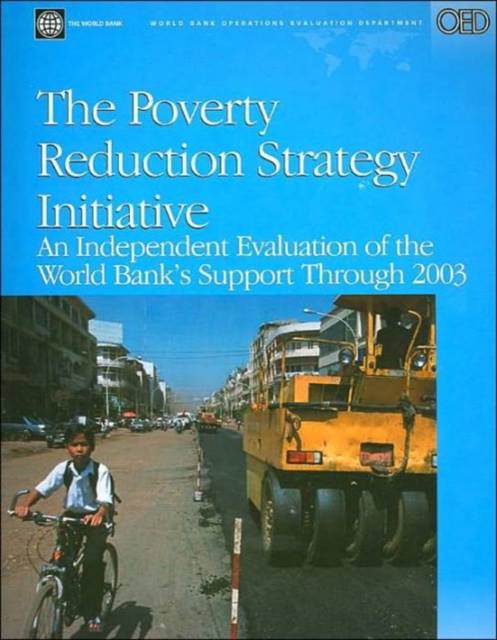
- Afhalen na 1 uur in een winkel met voorraad
- Gratis thuislevering in België vanaf € 30
- Ruim aanbod met 7 miljoen producten
- Afhalen na 1 uur in een winkel met voorraad
- Gratis thuislevering in België vanaf € 30
- Ruim aanbod met 7 miljoen producten
Zoeken
The Poverty Reduction Strategy Initiative
An Independent Evaluation of the World Bank's Support Through 2003
William G Battaile Jr
€ 17,45
+ 34 punten
Omschrijving
This book provides an independent assessment of the Poverty Reduction Strategy Initiative for the World Bank as well as the broader development community. It offers a frank and in-depth review of the progress thus far, with particular focus on the role and effectiveness of the Bank's support, drawing from extensive discussions with national stakeholders in Poverty Reduction Strategy (PRSP) countries, research and analytical work, and country case study reports on ten PRSP countries: Albania, Cambodia, Ethiopia, Guinea, Mauritania, Mozambique, Nicaragua, Tajikistan, Tanzania, and Vietnam. The author of 'The Poverty Reduction Strategy Initiative' concludes that the Initiative has led to improvements in national strategies and processes in some low-income countries, such as an increased poverty focus, a higher profile for monitoring results, and better donor-government dialogue. However, the contribution to broad poverty reduction, especially in more difficult country environments, is largely in jeopardy without significant changes. The author argues that the Initiative should be reoriented toward improving domestic processes and less on completion of documents, customizing the approach to particular country circumstances, filling analytical gaps to better understand which actions will provide the greatest poverty pay-off, and making sure the assistance programs of external partners are anchored in the country's poverty reduction strategy.
Specificaties
Betrokkenen
- Auteur(s):
- Uitgeverij:
Inhoud
- Aantal bladzijden:
- 124
- Taal:
- Engels
- Reeks:
Eigenschappen
- Productcode (EAN):
- 9780821359723
- Verschijningsdatum:
- 10/12/2004
- Uitvoering:
- Paperback
- Formaat:
- Trade paperback (VS)
- Afmetingen:
- 212 mm x 271 mm
- Gewicht:
- 362 g

Alleen bij Standaard Boekhandel
+ 34 punten op je klantenkaart van Standaard Boekhandel
Beoordelingen
We publiceren alleen reviews die voldoen aan de voorwaarden voor reviews. Bekijk onze voorwaarden voor reviews.











